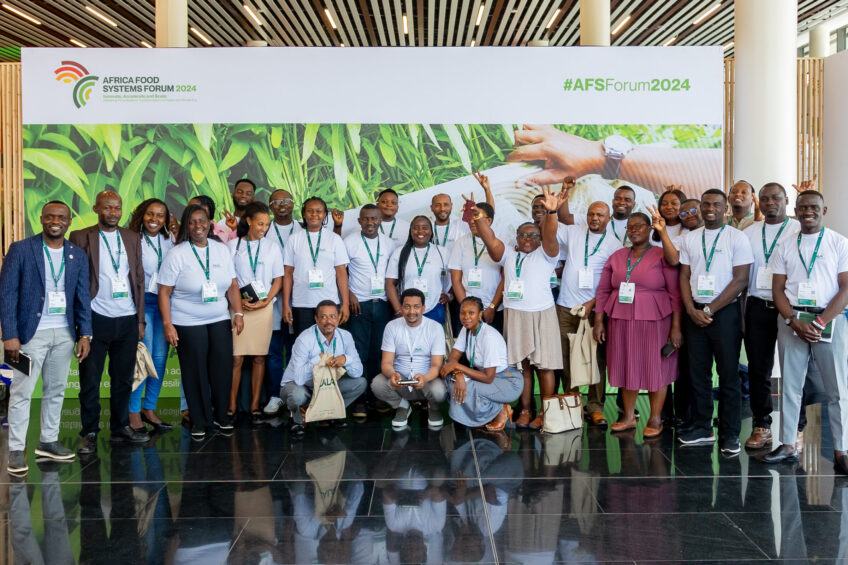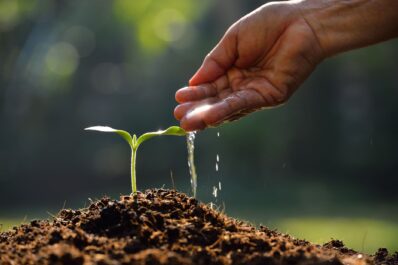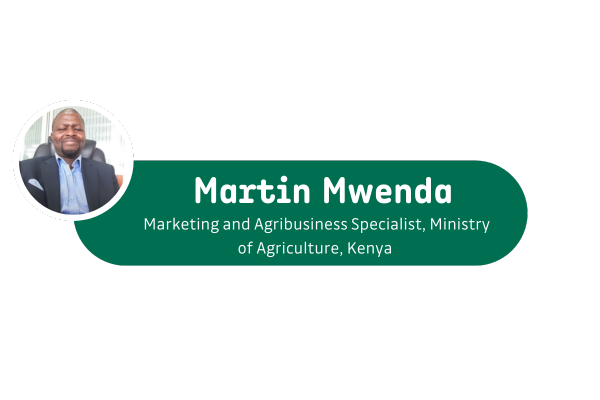Equipping Africa’s Public Sector Leaders to Drive Food Systems Change: From the Inside Out
29th July 2025 by CALA

What does it take to transform Africa’s food systems?
It’s not just better policies or better funding, it’s better leadership. The kind that knows how to move between boardrooms and farming communities, between vision and execution, between strategy and people. It’s the kind of leadership the Centre for African Leaders in Agriculture (CALA) was designed to grow.
Across the continent, CALA Fellows are reimagining what agricultural leadership can look like. They’re not just coordinating programmes or drafting action plans. They’re redesigning systems, rebuilding trust, and driving change that starts in ministries, planning commissions and frontline delivery.
“I currently put stakeholder involvement and participation at the center of my work and have found it helps me in designing tailor-made interventions.”
– Grace Bunanukye Bwengye, Senior Planner, National Planning Agriculture – Uganda
Before joining CALA, Grace already had influence, but he wanted to make it count. As a national planner, he plays a direct role in shaping Uganda’s agricultural development strategy. What CALA offered him was more than just theory; it gave him tools to make that strategy actionable and inclusive.
Through the programme, he shifted from top-down planning to deeply stakeholder-informed interventions.
And while his technical skills grew, so did his mindset. “Today, more than before, as I plan for the country, I give serious consideration to environmental protection.” It’s this kind of systems thinking that turns leadership into long-term impact.
“I’ve built a valuable network of professionals and gained practical tools for effective change.”
– Martin Mwenda, Marketing & Agribusiness Specialist, Ministry of Agriculture, Kenya
For Martin, the CALA experience didn’t just refine his leadership style; it rewired his approach entirely. More than that, he’s become a vocal champion for food security and sustainable agriculture.
The coaching and peer learning model helped Martin transition from technical expertise to influence. With CALA, he stepped confidently into his role as a leader who can advocate for environmental sustainability and agricultural reform not just within Kenya, but on a continental and global stage.
“The experience was awesome. I aim to drive positive change for sustainable food security, and I’m grateful to CALA, AGRA, and the support agencies for this opportunity.”
– Janet Olushola Mshelia – Federal Ministry of Finance, Budget & National Planning, Nigeria
Janet came into the programme with experience in national planning, but she left CALA with something more: a sharpened leadership toolkit and a renewed sense of purpose. Through the AMI courses, coaching, and peer collaboration, she developed stronger communication skills, problem-solving and emotional intelligence skills that have elevated her ability to lead across departments and sectors.
“Collaboration has made me a better leader. Coaching motivated me to meet deadlines and enhance my leadership.”
Today, Janet is more equipped to drive cross-sector conversations and push forward Nigeria’s sustainable food security agenda. What started as a professional development opportunity became a personal transformation, one that fuels her commitment to shaping lasting, systems-level change.
The Bigger Picture: Leadership Is the Lever
These leaders may come from different roles and countries, but the thread is clear: Africa’s agricultural transformation depends on how well its leaders are equipped to lead.
CALA’s unique model isn’t just about knowledge; it’s about capacity. Through executive coaching, practical learning, and peer connection across borders, the programme equips leaders to think systemically, act collaboratively, and lead with clarity under pressure.
Because real change doesn’t arrive from the top or sweep in from the outside.
It’s built from the inside out — leader by leader, system by system, field by field.
And thanks to CALA, that change is already underway.
Related posts

AGRA Announces Open of CALA’s Advanced Leadership Programme Fourth Cohort Applications
15th May 2024
AGRA has announced the opening of applications for the third cohort of the Centre for African Leaders in Agriculture (CALA)’s Advanced Leadership Programme, designed for rising stars(upcoming technical leaders) and established executives from across Africa’s agriculture sector in government, the private sector, and civil society.
The Advanced Leadership programme is the continent’s premier leadership programme, tailored to support developing leaders in advancing agriculture transformation across the continent through the improved capacity to lead the implementation of country agriculture flagship programmes and national agriculture priority programmes.

Alumni Spotlight: Leading the Charge for Sustainable Agriculture in Africa
24th October 2023
“Knowledge empowers leaders. It’s the catalyst for change,” says Peter Juma Lugendo, an alumnus of the Centre for African Leaders in Agriculture (CALA) and the President and Chief Operating Officer at Kickstart. Peter’s journey through agriculture is a testament to what can be achieved when visionary leaders are armed with knowledge and driven by a profound purpose.
Through his training, Peter gained a deeper understanding of collaborative leadership and the art of setting SMART goals. These newfound skills supported his goal to create a nurturing environment at Kickstart, where team members thrive and perform effectively.

Alumni Spotlight: Promoting Sustainable Food Systems in Uganda- A World Food Day Special Edition
16th October 2023
In the Pearl of Africa, a determined alumna of the Centre for African Leaders in Agriculture (CALA), Rachel Ajambo, is on a mission to revolutionize food systems and combat global hunger. As the world is celebrating World Food Day with the theme “Water is life, water is food. Leave no one behind,” Rachel’s story serves as a testament to the power of education, collaboration, and commitment.
Rachel’s journey with CALA broadened her perspective on value chain development and food system transformation. With newfound knowledge, she delved into the complexities of managing water for production, a topic deeply connected to this year’s World Food Day theme.
The Centre for African Leaders in Agriculture (CALA) is made possible with the friendly support of:




